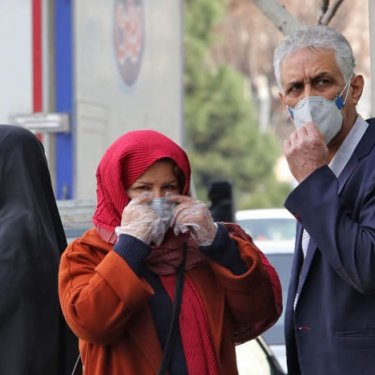Iranian journalists hounded for disputing official coronavirus figures

As the official statistics continue to conceal the coronavirus epidemic’s real impact in Iran, the Iranian authorities are stepping up their harassment of journalists who are providing independent coverage of the spread of the virus and, in particular, the real number of deaths.
In almost all parts of the country, journalists and citizen-journalists have been summoned for questioning by ministry of intelligence officials or Revolutionary Guards after reporting information that contradicted official statements about the COVID-19 epidemic, and some have been charged with “spreading rumours.”
Hamzeh Zare, the deputy prosecutor of the holy city of Qom, announced on 5 March that the person who shot clandestine video footage in the city’s morgue had been arrested and charged. The video, which has circulated widely on social media, showed the bodies of around 30 coronavirus victims, although the official number of deaths in Qom was much lower.
Two days later, the head of the judicial system in Qom, Ali Mozafari, announced the arrest of a nurse in Qom who had posted information on Instagram about the real number of deaths and the lack of equipment in the hospital. He was released provisionally three days later.
Fardin Moustafai, the editor of a news channel on the Telegram instant messaging app, was summoned by the judicial authorities in Saqqez, in Kurdistan province, on 6 March and was charged with publishing figures contradicting official information about the epidemic’s progress in the province.
In Rasht, one of the cities that has been hit worst by the epidemic, two journalists were summoned for questioning by Revolutionary Guard intelligence officials for publishing information about the chaotic situation in the city and the number of victims. One of the officials told them: “The country is at war and the publication of this information amounts to collaborating with the enemy.”
In the capital, Tehran, four journalists who are active on social networks, including Mostafa Faghihi, the editor of the Entekhab news website, and the documentary filmmaker Hussein Dehbashi, were summoned by intelligence ministry officials and the prosecutor’s office for publicly casting doubt on official informational about the epidemic.
“Misinforming and harassing journalists who are providing information about the real situation in Iran will not help to combat the coronavirus epidemic, quite the contrary,” said Reza Moini, the head of RSF’s Iran desk. “The authorities must respect the public’s right to full, independent, diverse and quality news reporting, as enshrined in the Universal Declaration of Human Rights. To protect the population, information needs to circulate properly.”
These latest cases of judicial harassment follow those already reported by RSF in February. RSF also already condemned the concealment of the facts about the spread of the virus in Iran.
Iran is ranked 170th out of 180 countries in RSF’s 2019 World Press Freedom Index.



